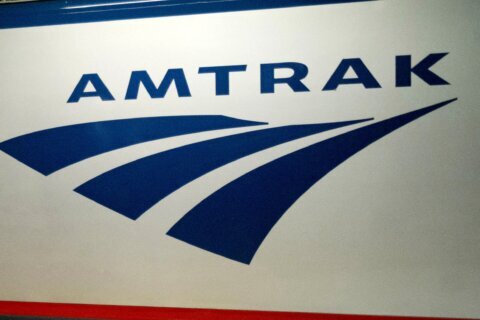WASHINGTON — Metro is taking the next step toward privatizing its parking lots and garages, seeking a deal that could see parking rates continue to rise over 50 years but put the burden of rebuilding aging garages on private companies.
A request for proposals released by Metro on Thursday seeks a 50-year deal that would give a private company the right to collect all parking and other revenue from garages. The deal is expected to be based on a projection that parking rates would increase 3 percent each year beginning in July 2018, and could also include new variable parking pricing.
In exchange, the company would be responsible for all maintenance and would also be “responsible for any replacement of equipment or parking structures on all Parking Facilities” over the course of the 50-year deal, including returning all parking structures with at least the same amount of usable life as they have today.
Metro’s own review finds the south parking lot at Huntington and the Southern Avenue lot are in poor condition. While that Huntington lot is 32 years old, Southern Avenue’s only opened in 2001. Other garages have been rated fair to good by a Metro consultant.
The goals of the deal are “fair compensation” for WMATA, “high-quality service for Metro transit customers and other parking users,” and “innovative, high-quality approaches to parking management.”
Metro must balance increased revenue from parking with the threat of a ridership decline from people who drive to stations if parking rates rise too high.
“Proposers are encouraged to propose alternate parking fee schedules and structures,” the request for proposals says.
That could include higher parking costs when there is higher demand for parking, or changes to include charging for parking on weekends or holidays at some or all stations. Lots could also get improvements like systems that indicate to drivers where and if spaces are open.
Any changes to parking rates or hours would require approval of the Metro Board as part of the agreement. Changes to rates or hours also require a public hearing and, depending on the parameters of the deal, may also require approval from the Federal Transit Administration.
Metro is clear in the request for proposals that it is not committing yet to the full parking privatization plan and could revise the deal to only include some parking facilities or could take some pieces of proposals without awarding a contract.
If a deal is reached, the private company would get to collect revenue from other fees in the parking garages such as leases with outside groups, reserved parking permits or other agreements, but Metro reserves the right to determine what other sources of revenue are allowed.
With long-term Metro track work needed, the document clearly states that “proposers should note that there will be no recourse to WMATA for bus and rail service changes and interruptions that may impact individual assets within the Parking Portfolio.”
Metro has 26 garages and 30 lots with 59,267 spaces plus 3,445 coin-operated parking meters. In total, Metro collected $44.8 million in parking revenue in fiscal year 2015.
Loudoun County is looking for bids to build the parking structures at its stations that are scheduled to open as part of the second phase of the Silver Line around 2020. Those are not included in this proposal. The Wiehle-Reston East parking garage is owned and operated by Fairfax County rather than Metro, so it would not be part of the deal either.
Metro General Manager Paul Wiedefeld announced in March that he planned to look into privatizing parking facilities, and Metro said early last month that the request for proposals was being finalized.
Metro workers have expressed concerns about the privatization proposal.
Proposals from companies are due Oct. 28, with the selection of a preferred winner expected by Dec. 2. If Metro moves forward, it hopes the deal closes by July 1 of next year.







